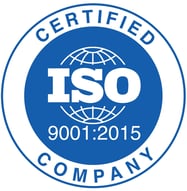Customer satisfaction is mission number one, always. This is an idea that will never change. So as long as it is, quality management will be the most important part of it. Thankfully, sticking to standards of quality management is the surest way to make quality products the highest priority.
Staying up with standards accomplishes two things: making sure the parts produced are nothing less than the best, and giving customers the peace of mind knowing that a company is up to standard. Pleasant Precision applies industry standards that are especially customer-focused. And of course, there is always an emphasis on the cycle of improvement.
The ISO 9001:2015 and ISO/TS 16949:2015 are applied to the Tooling Division and the Molding Division, respectively. These standards are applied by Pleasant Precision because they focus on the most important principles – customer satisfaction, consistency in quality, implication of top management, continuous improvement, and continuous advancement.
In the Tooling Division
ISO 9001:2015 covers general, but crucial requirements. This standard ensures that Pleasant Precision effectively (and consistently) gives its customers products that meet the customer’s requirements. The company has been certified to these standards for 18 years.
Another part of the standard is the actual process of improvement, which is the most critical part. Of course, it’s a requirement that advancements and improvements to the system are done to increase quality. Growth and improvement in the system means quality, and quality means happy customers.
In the Molding Division
It’s always necessary to focus on developments, and the actual production system. Quality needs to be managed at every step. This is what ISO/TS 16949:2015 makes sure of. The standard requires Pleasant Precision to optimize its quality management within design/development, actual production, and as far as the installation of products.
Especially with requirements for product services, there is an emphasis on customer satisfaction. But the standard generally requires that quality management systems are in place, and each is clearly defined. There needs to be process monitoring, calibration records, contingency plans, and dozens more.
Pleasant Precision is certified to this standard so that the system functions, and functions so well that there is the tightest tolerance. Because the standard is precise, the system is precise, and then the quality is the highest, most precise it can be.
Continuous improvement
The cycle of improvement is never-ending, and we know certain standards make sure of it. It’s necessary for a number of reasons, one of them being a constant increase in quality. Not just the quality of the product itself, but also the flow and efficiency of the quality management system.
As new, revised standards come out this year, Pleasant Precision is actively seeking certification. To constantly improve also means to constantly stick to requirements. This is how the PPI team gives truth to its motto.



